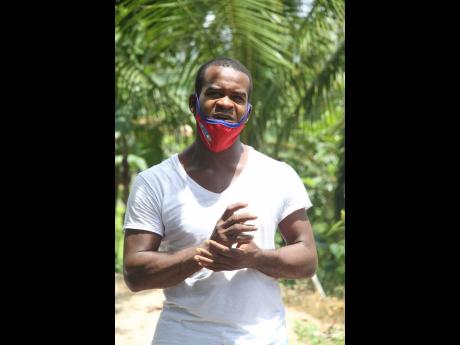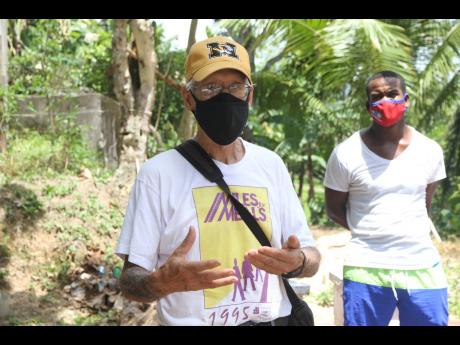Beekeeping project set to revive Crooked River
CROOKED RIVER, Clarendon:
THE CROOKED River community in northern Clarendon could be the answer to employment prayers that many have been seeking.
The project valued at $855,000 is a social enterprise incorporating agroforest and beekeeping and is being administered through the 4-H Club.
The programme involves 10 participants from the community being trained, with their receiving a colony of bees on completion of the training.
“The other part of the project is where we have some lumber and fruit trees to plant, which will be used for soil conservation and to provide floral for the bees. It will be planted in specific points where soil erosion can be prevented, and also act as a barrier against landslides,” said Darrick Grant, Social Development Commission officer for the area, as well as the coordinator of the project.
Grant, who was born in the area, said jobs have always been a challenge which results in a brain drain.
“What we find, we are having a brain drain because people who go outside to seek job opportunities most time never come back, so we keep on having our young people leaving the community and creating a strain on the community. So if we can have more job opportunities inside the community for the ones who want to stay can do so and earn,” he shared with The Gleaner.
Crooked River, which is generally a farming community, would normally see residents growing citrus, chocolate, coffee, something Grant said has faded over the years with the land now being used for other purposes.
“So we have less opportunity or less access to land, so we have to come up with creative ways, for example, apiculture will take a smaller space to have a business out of as opposed to a cane field because the youngsters don’t have much access to land or land tenureship, so having them working from home, things they can do in their own backyard will be a good thing,” he shared, as he explained that spin-offs from apiculture will see the youth exploring candle making from the beeswax, as well as charismatic young people can actually take on the challenge of marketing the honey.
BEEKEEPING DREAM FOR COMMUNITY
He said his dream is to see Crooked River become one of the biggest beekeeping areas in Jamaica.
Gareth Lewin, field officer for the USA Partners of America Farmer to Farmer Programme and who hails from a nearby community (James Hill), will also be training the participants in aquaculture, bees and other forms of livestock.
Lewin said coming out of the training, they will be looking at the ‘multiplier effect’ so that participants can not only earn, but the spin-off can include other unemployed from the community.
“USA partners of America our country strategy involves rural adaptation and resilience with the use of aquaculture. Bees are a form of livestock so we think about not only being trained but having people being trainers. We are interested in training young people that while they have been trained they can go out and train other people developing an interest,” Lewin explained.
Currently, Lewin said honey is sold for an estimated price of $40-45,000 per five gallon bucket.
“We are also interested in the collaboration in value-added products from the beekeeping for young people. We are thinking about helping them to write grants proposal is a future project, also value-added from the beekeeping, bee wax, bee pollen help them to create new products for those we are in the business of helping them to become young entrepreneurs, self-sufficient, so the first step to that is getting them trained in the beekeeping aspects,” Lewin shared.
Another value-added that can result from the project, Lewin notes, is the making of bee boxes which can see carpenters in the area getting more work.
Crooked River will also benefit from two St Ann-based volunteers from the United States – Dr William Zimmerman, a soil microbiologist who will be sharing his expertise on soil fertility and compost, and Ben Baldi, a vegetable farmer who specialises in mushrooms.


